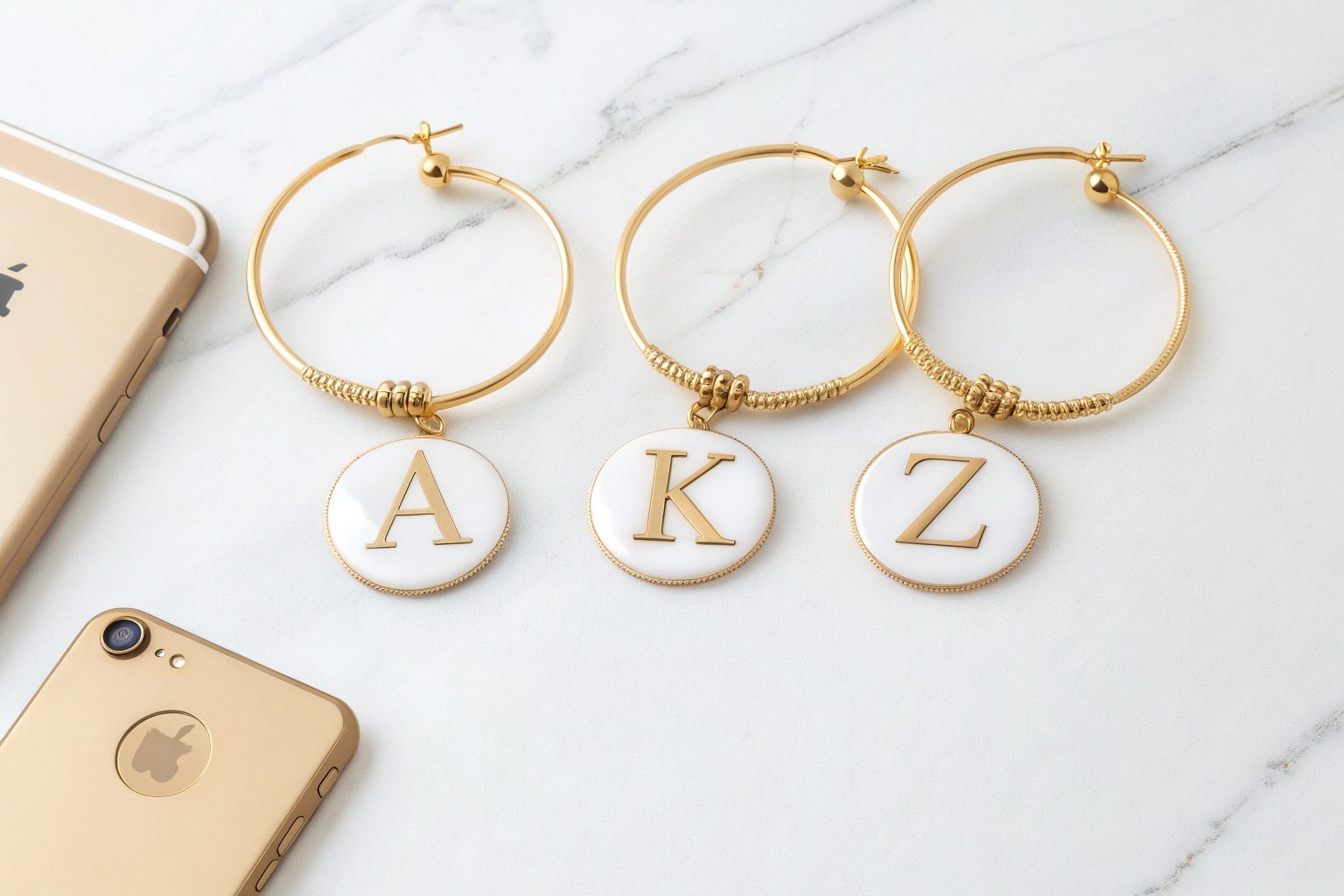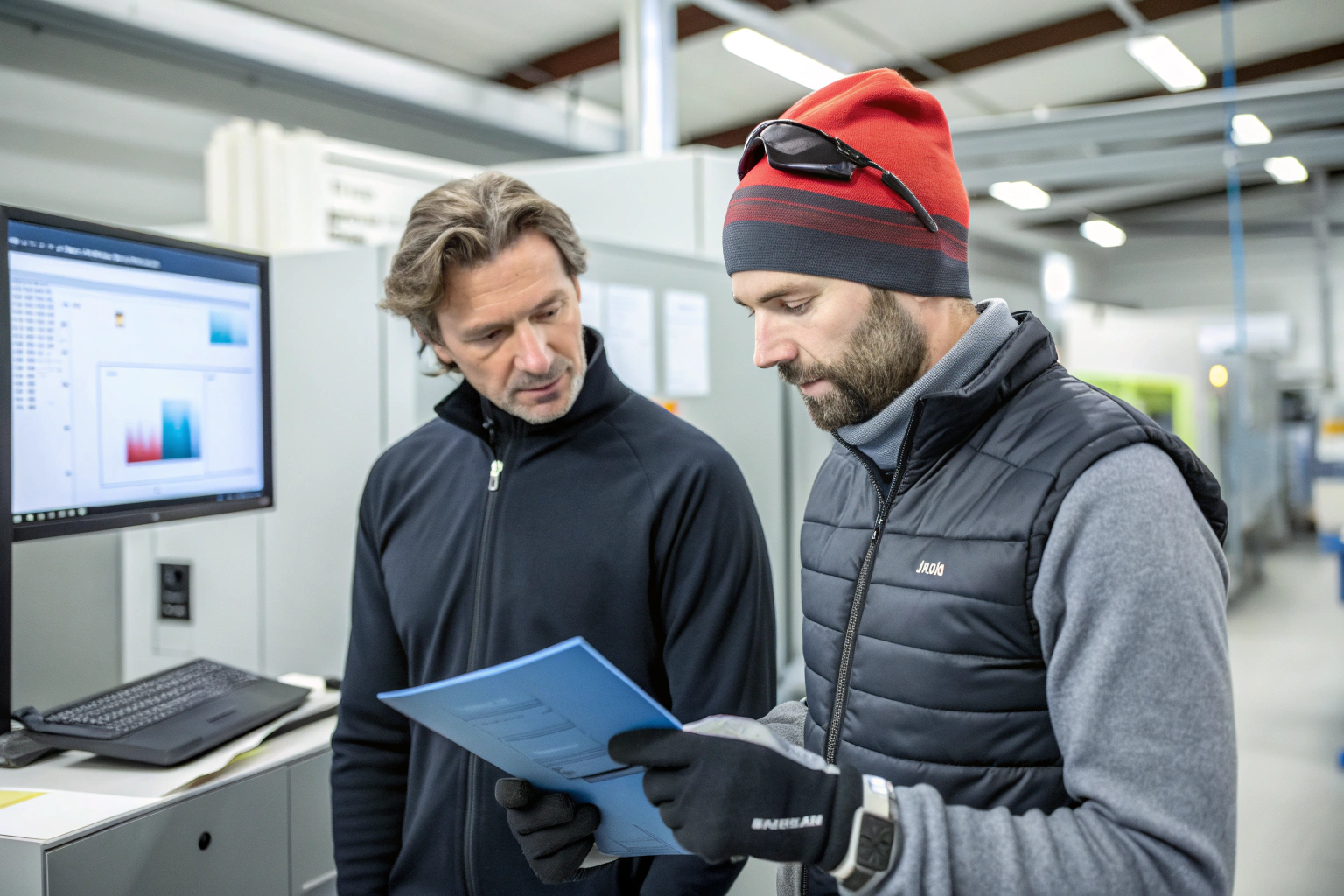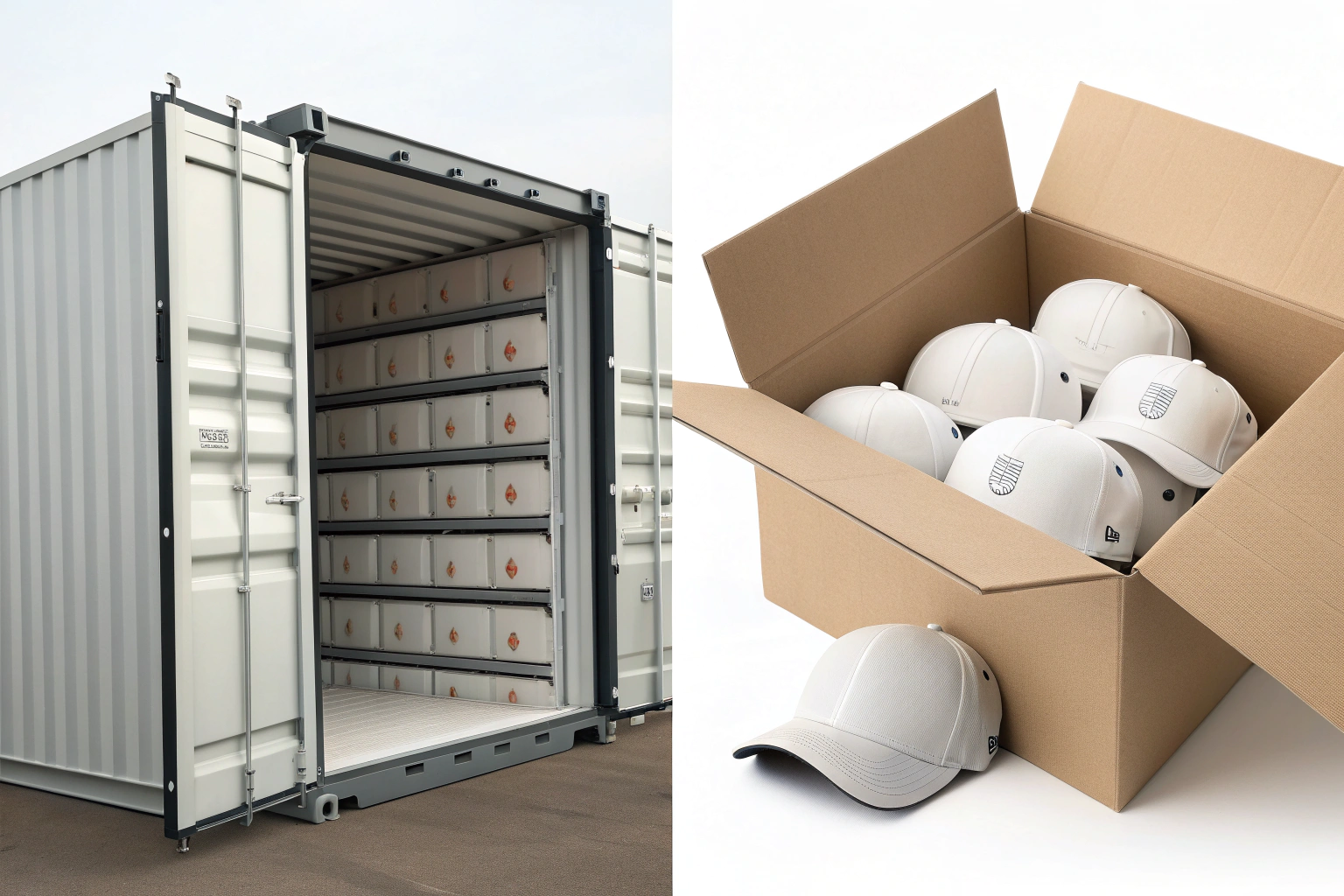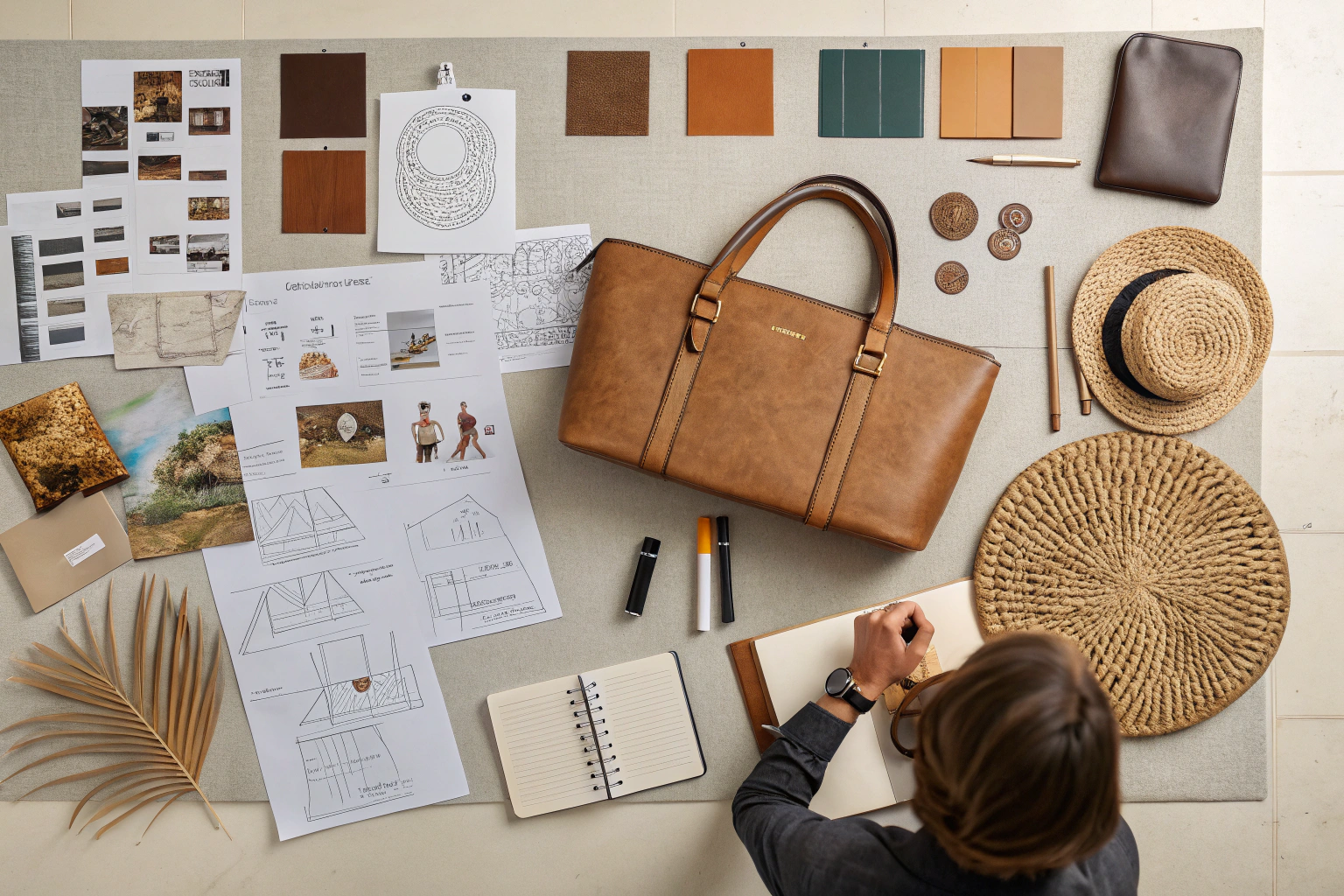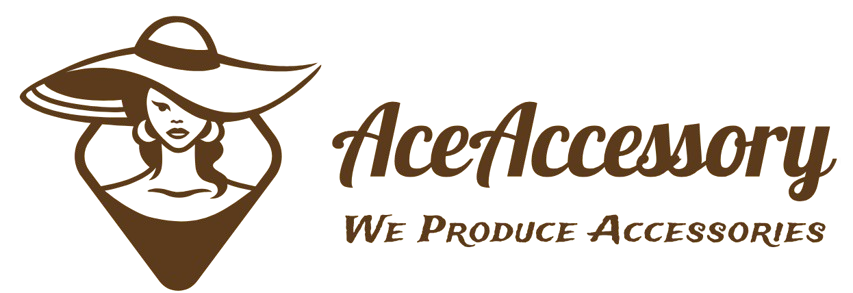For accessory brands sourcing from China, consistency matters just as much as creativity. A slightly off-size hairband or a wrongly dyed scarf can ruin an entire shipment. That’s why quality control isn’t a luxury—it’s a necessity.
Modern factories in Zhejiang ensure consistent accessory quality through automated equipment, in-house QC teams, skilled labor, and standardized certifications like BSCI and ISO. Each part of the process is built for repeatable, stable results.
At AceAccessory, our factory in Zhejiang has worked with brands in Europe and North America who rely on us not just for design, but for precision. Here's how we deliver dependable quality, batch after batch.
Advanced Equipment Used in Zhejiang Accessory Factories
Gone are the days when factories relied purely on hand-cutting and manual stitching. Today’s Zhejiang factories use machinery that balances speed with consistency.
Zhejiang accessory factories use digital cutting tables, computerized sewing machines, UV logo printers, automatic labeling systems, and heat-press transfer machines to ensure products meet tight tolerances across every batch.
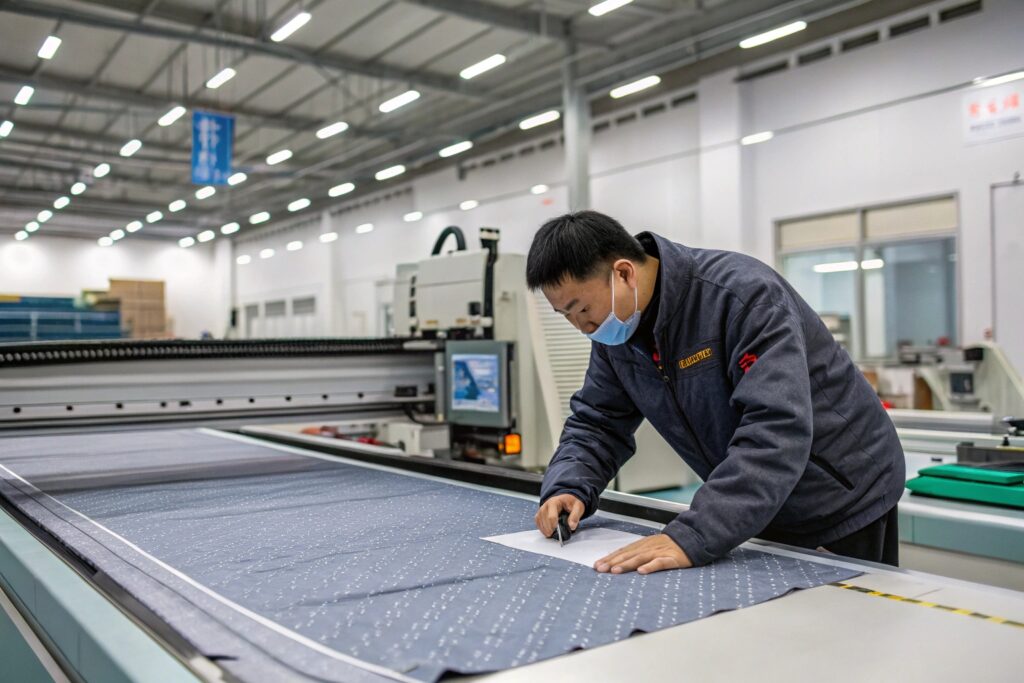
Core Equipment in Modern Accessory Production
| Equipment Type | Function |
|---|---|
| Digital Fabric Cutter | Auto-cut materials for scarves, gloves, bands |
| Computerized Stitching | Uniform seams, reduces human stitching errors |
| Heat Press Machines | Attach labels and decorations with precision |
| UV Logo Printers | Direct print brand designs onto belts and hats |
| Pneumatic Hole Punchers | Ensure symmetrical holes in belts or straps |
| Barcode Labeling Systems | Match SKUs to packaging to avoid mix-ups |
For example, when producing our faux leather belts, we use adjustable dies that accommodate multiple widths and styles—this keeps each cut clean and every stitch aligned.
Not only does this speed up production, it minimizes human error—a key reason why our defect rate has remained below 1.2% across the last 36 months.
How In-House QC Teams Monitor Every Production Stage?
Even the best machines need human eyes. Our QC team doesn’t wait until the final box is packed—they start from the raw material stage.
In-house quality control teams monitor accessory production at four stages: incoming material inspection, in-line process checks, post-assembly review, and pre-shipping audits. This ensures errors are caught early and corrected fast.
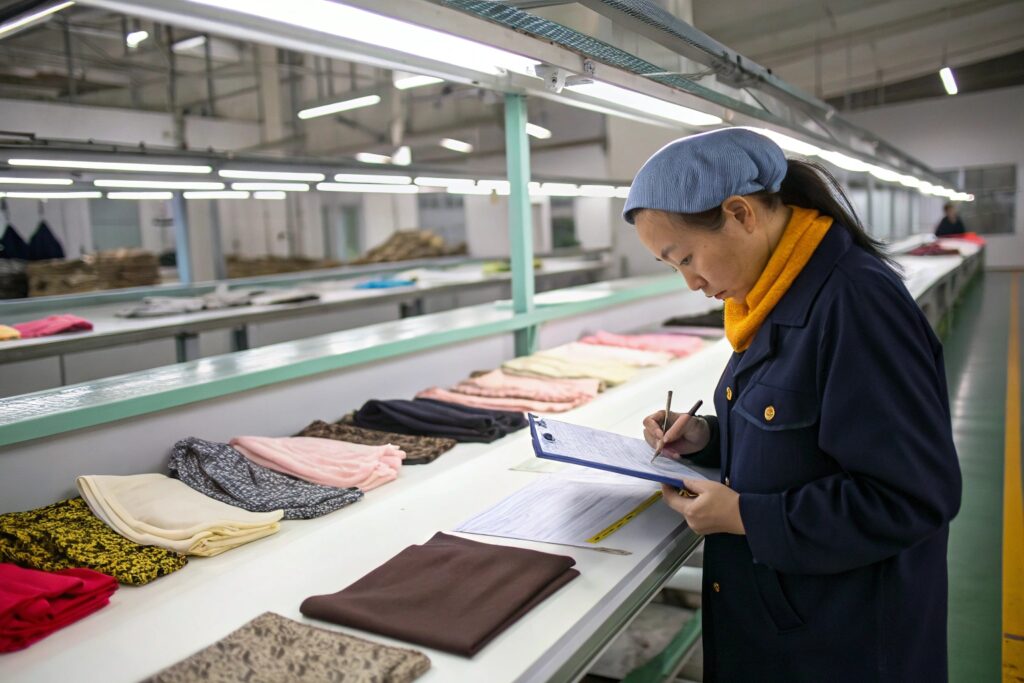
Our QC Workflow at AceAccessory
| Stage | What We Check |
|---|---|
| Raw Material Inspection | Color match, tensile strength, supplier tags |
| In-Line Inspection (Day 1–5) | Stitch alignment, print accuracy, glue residue |
| Post-Production Review | Finished product dimensions, feel, decoration |
| Packing QC | SKU matching, logo placement, label consistency |
Our QC team uses:
- Digital calipers to measure clip and scarf widths
- Color readers to check dye accuracy against Pantone standards
- Sample records from previous orders for consistency
One client from Germany sends seasonal reorders of headbands in 6 colors. We keep a reference swatch board on hand, and our QC team compares every new dye lot to it. If the shade is even 3% off, we reject the batch before it enters production.
This in-house method saves time and builds trust—our repeat order accuracy rate is over 98.6%.
Role of Skilled Workers in Achieving Stable Quality
Machines help, but experienced workers are the real difference-makers. A skilled stitcher or packer can spot a defect before QC even sees it.
Skilled workers in Zhejiang factories are trained in specific accessory lines—whether it’s stitching elastic bands, printing scarf logos, or aligning belt rivets. Their consistency and eye for detail are crucial to maintaining product quality.
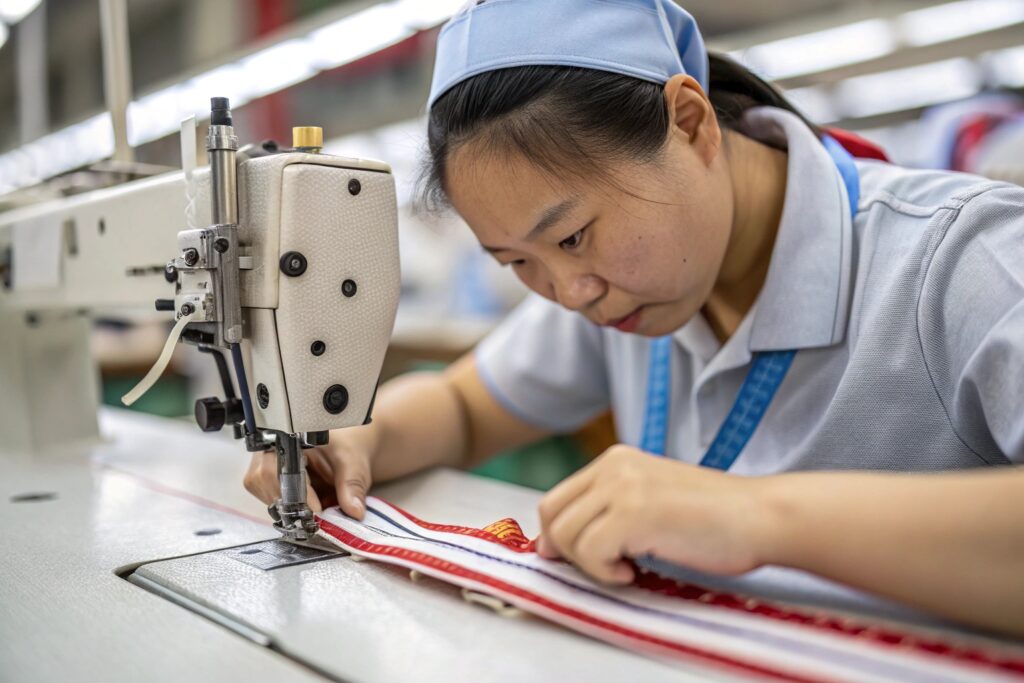
Worker Roles in Accessory Factories
| Job Title | Task |
|---|---|
| Cutter | Measures and slices fabrics to millimeter specs |
| Stitcher | Operates machine, maintains tension and alignment |
| Logo Print Technician | Sets up files, tests swatches, runs UV printer |
| QC Inspector | Monitors workflow, records pass/fail per batch |
| Packer | Matches SKU barcodes, arranges items by PO |
At AceAccessory, we invest in monthly training for both our new and veteran workers. Topics include:
- Reducing stitch distortion
- Identifying common fabric flaws
- New logo placement guidelines
- Packaging and labeling updates for specific clients
When we hired a new logo press operator, they spent 2 weeks shadowing our senior staff before touching any client products. As a result, we had zero logo misplacements during their first 3 months.
Skilled workers are why custom orders—like velvet scrunchies with pearl rivets or embroidered holiday scarves—still get done on time and within spec.
Factory Audits and Certifications That Build Trust
Third-party certifications are more than paperwork. They show that your manufacturer meets global standards—not just local promises.
Modern factories in Zhejiang maintain certifications like BSCI, ISO 9001, SEDEX, and GRS to prove their commitment to ethical labor, product consistency, and safe production environments.
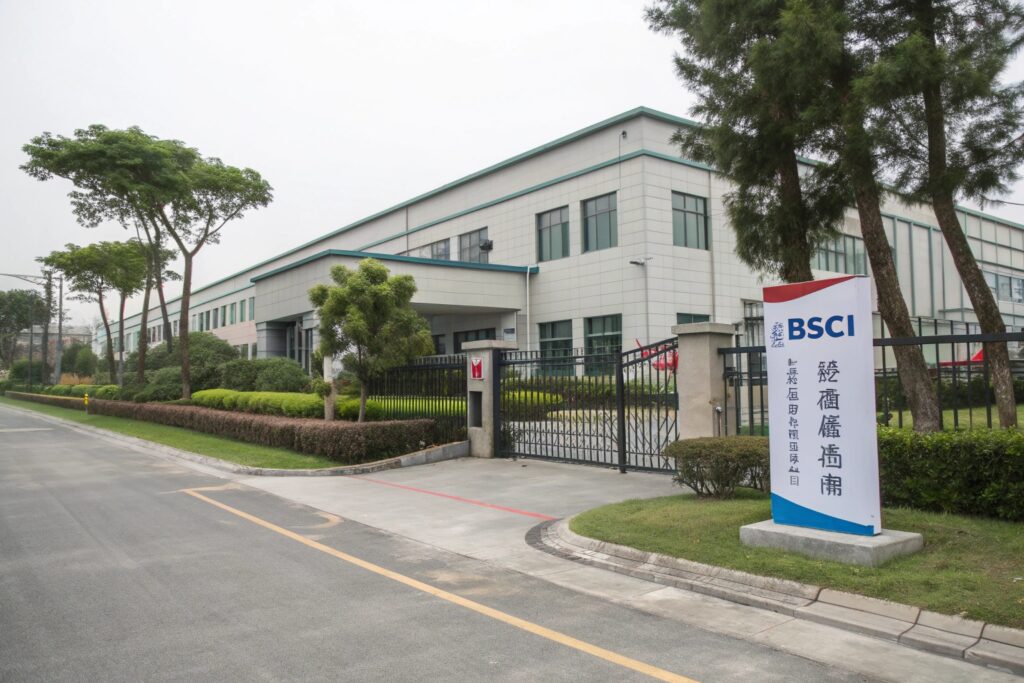
Common Certifications in Accessory Manufacturing
| Certification | What It Verifies |
|---|---|
| BSCI | Ethical labor practices and fair workplace policies |
| ISO 9001 | Standardized quality management system |
| SEDEX | Supply chain transparency and risk management |
| GRS | Use of certified recycled materials in accessories |
| OEKO-TEX | Fabric safety and non-toxic processing methods |
We keep audit reports updated annually and provide them to clients on request. We also welcome third-party inspections—some of our clients send SGS or TÜV teams for surprise visits.
During these audits, we show:
- Employee training logs
- Material traceability systems
- Fire safety documentation
- Machine maintenance records
A European buyer of leather belts told us that our ISO system and GRS material sourcing were the key reasons they switched from their previous supplier.
We also offer live factory tours via video—perfect for buyers who can’t fly in, but still want to verify the production line and speak to staff.
Conclusion
Modern Zhejiang accessory factories succeed because they blend automation, human skill, and strict process control. From machines to QC, from training to certifications—every step is designed to deliver consistent quality you can trust, season after season.


